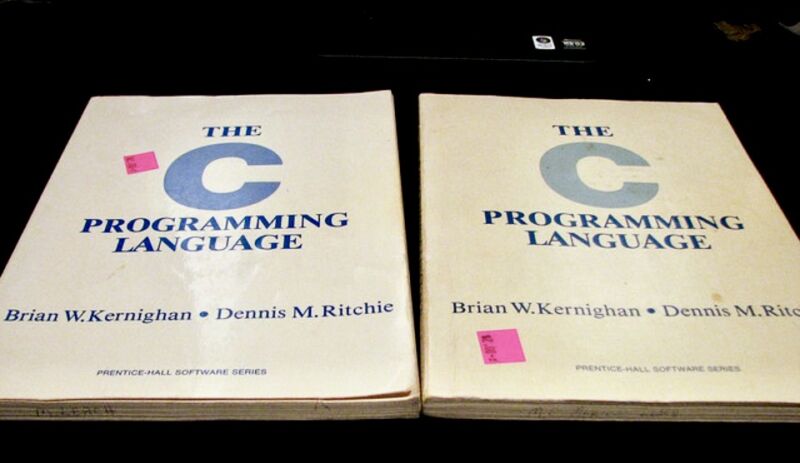
Enlarge / As hard as it may be to believe, C was not simply born in wellworn paperback form. (credit: Bill Bradford)
In one form or another, C has influenced the shape of almost every programming language developed since the 1980s. Some languages like C++, C#, and objective C are intended to be direct successors to the language, while other languages have merely adopted and adapted C’s syntax. A programmer conversant in Java, PHP, Ruby, Python or Perl will have little difficulty understanding simple C programs, and in that sense, C may be thought of almost as a lingua franca among programmers.
But C did not emerge fully formed out of thin air as some programming monolith. The story of C begins in England, with a colleague of Alan Turing and a program that played checkers.
God Save the King
Christopher Strachey was known as the “person who wrote perfect programs,” as noted in a long profile from the journal, Annals of the History of Computing. It was a reputation he acquired at the Manchester University Computing Center in 1951. Strachey ended up there, working on the school’s Ferranti Mark I computer through an old King’s College, Cambridge, connection, Alan Turing.
Read 54 remaining paragraphs | Comments
https://ift.tt/3m4S6Dn
Comments